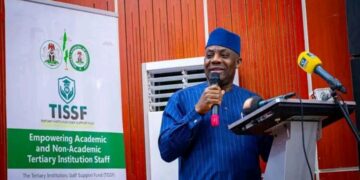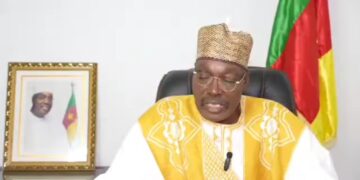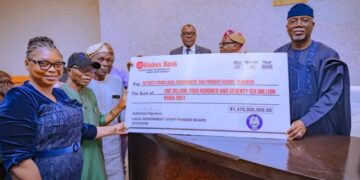![]()
Chief Abiodun Oladimeji Lasile, DL Orunto of Owu Kingdom and Founder of The SixthSense Initiative, has stressed that cultivating a strong reading culture is a vital tool for both youth empowerment and national development.
Dr. Lasile made this known while delivering a lecture titled “Reading Culture as a Tool in Promoting Youth and National Development” at the 13th Speech and Prize Giving Day of Command Day Secondary School, Lafenwa, Abeokuta.
He explained that in today’s fast-paced world, reading remains a beacon of hope for building knowledgeable youths who can contribute meaningfully to national growth.
According to him, the state of reading culture among young people is a mixed reality, with only a few still committed to books, while many have drifted away due to distractions such as social media and limited access to quality materials.
“The media, technology, and modern trends have shifted the attention of young people, yet we must remember that reading shapes the mind, enhances creativity, and improves problem-solving skills. It also builds empathy and communication, which are vital for navigating an increasingly complex world,” Lasile said.
He noted that the development of any nation depends on how informed and enlightened its citizens are, adding that reading culture lays the foundation for innovation, civic responsibility, and economic growth.
“A knowledgeable and informed citizenry is better equipped to drive progress. Reading fosters deeper understanding, informed decision-making, and civic engagement, all of which are essential for national transformation,” he emphasized.
While highlighting some of the successful ways to promote literacy, Dr. Lasile pointed to book clubs, reading challenges, literacy workshops, and author visits as examples of initiatives that can revive reading culture.
He also mentioned the role of his organization, The SixthSense Initiative, in advocating for a society that values books and learning.
He charged parents, teachers, and policymakers to create environments that support and encourage young people to read, warning that neglecting reading culture would pose serious risks to the country’s intellectual and developmental future.
In his closing remarks, he called for collective action to revive reading culture as a tool to transform lives and empower young people to become active participants in shaping a brighter national future.

























